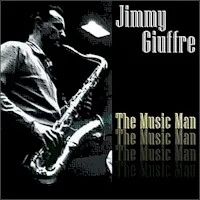Bitrate: MP3@320K/s
Time: 57:02
Size: 130.6 MB
Styles: R&B, Soul, Traditional pop
Year: 2011
Art: Front
[3:16] 1. Little Brown Book
[2:54] 2. Trouble In Mind
[3:13] 3. Try A Little Tenderness
[2:50] 4. It Ain't Necessarily So
[2:46] 5. How Deep Is The Ocean
[4:34] 6. Cold, Cold Heart
[2:29] 7. Love For Sale
[2:30] 8. How Glad I Am
[2:50] 9. Skylark
[4:33] 10. This Bitter Earth
[2:14] 11. Ac-Cent-Tchu-Ate The Positive
[3:29] 12. What A Difference A Day Made
[4:51] 13. Only The Lonely
[2:21] 14. Rock A Bye Your Baby With A Dixie Melody
[3:01] 15. God Bless The Child
[3:06] 16. Say It Isn't So
[2:39] 17. Are You Sure
[3:17] 18. That Lucky Old Sun (Just Rolls Around Heaven All Day)
Legacy released this 18-track disc less than two months prior to the 11-CD/one-DVD Take a Look: Aretha Franklin Complete on Columbia. In a sense, The Great American Songbook is nothing more than a box-set sampler, but it shall remain an excellent overview of Franklin’s overlooked (or willfully ignored) early-‘60s releases, which were heavy on interpretations of songs written by the likes of Hoagy Carmichael and Johnny Mercer, George and Ira Gershwin, Jimmy Van Heusen and Sammy Cahn, and Irving Berlin. While she had not fully blossomed and was years away from the gutsier material of her commercial peak -- only “Rock-a-Bye Your Baby with a Dixie Melody” scratched the Top 40 -- her voice was nonetheless supremely expressive, rooted in her gospel upbringing and drenched in soul. She was no mere stylist; when she sings “Ooh, honey, I’d like to really melt your cold, cold heart,” there is as much fire as there is in any given line of “(You Make Me Feel Like A) Natural Woman.” Even the earliest cuts here, taken from late 1960 and early 1961 sessions with the Ray Bryant Combo, are soul through and through. (Note for fanatics: the mixes of "Trouble in Mind" and "Love for Sale" eliminate the fabricated crowd noise heard on Yeah!!!.) ~Andy Kellman
The Great American Songbook









